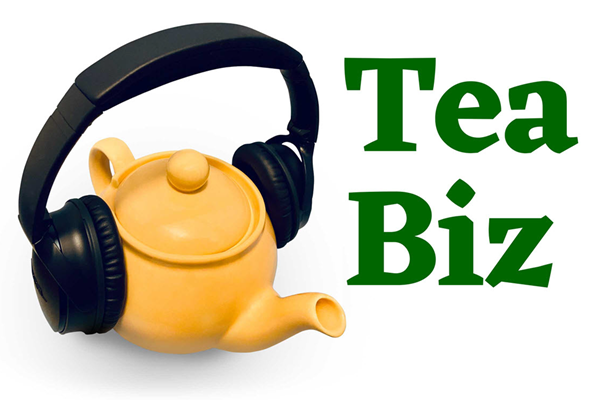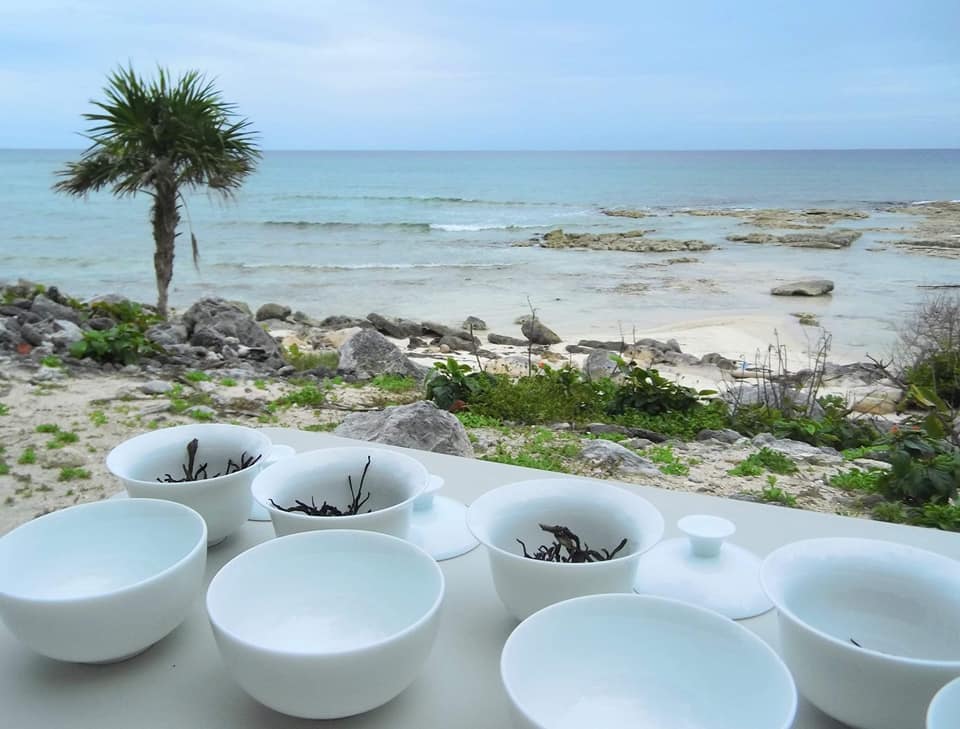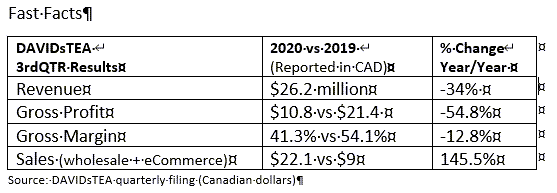
Listen to the Tea Biz Podcast for the week of February 12
Here are the News Headlines

• Hard tea packs a punch
• India earmarks worker subsidies for women and children
• Beware of false claims, FDA warns companies to stop misleading consumers with products that claim to cure COVID-19
Features
Since 2013 the US League of Tea Growers has nurtured close collaboration among the more than 60 growers in 15 American states producing tea for commercial sale. Led by Angela McDonald, owner of Oregon Tea Traders, the group hosts online webinars and discussions. This week Kevin Gascoyne, a well-known tea buyer and co-owner of the Camellia Sinensis tea company in Montreal, counseled the group on what American tea growers need to do to make themselves competitive on the world stage. He also had this to say about what makes America’s experiment in tea growing relevant to the industry at large.
Enrollment in the Tea & Herbal Association of Canada’s Tea Sommelier Certification Program surged during lockdowns and continues to grow in the new year. The program, designed for tea professionals, costs between $2,500 and $3,500 to complete online, or, on campus. In this report Jessica Natale Woollard talks with founder Shabnam Weber and with MacKenzie Bailey, a tea sommelier enrolled in the online program.
News you Need to Know
Hard Tea
Rates of alcohol consumption in spring 2020 were up 14 percent compared with the same period in 2019 and drinkers consumed nearly 30 percent more than in pre-pandemic months, according to Modern Healthcare magazine. The spike is due in part to the onset of “cabin fever” and the speedy delivery to your door of every kind of booze you can imagine from high-proof bourbon and Scotch to crafty beers and juice coolers. Michigan residents, as one example, consumed an average 956 alcoholic drinks per person in 2020.
Hard tea with its moderate volume of alcohol and healthy halo is in sync with this trend. Well-known Twisted Tea, a 5% alcohol by volume (ABV) iced tea dates to 2000 but leave it to America’s big bottlers to add a new layer of glitz by combining tea with trending seltzer.

Truly Hard Seltzer iced tea (a 5% ABV launched by the Boston Beer Co. this month follows organic seltzer pioneers Suzie’s Brewery in Pendleton, Ore. and Michelob ULTRA hard seltzer, Bud Light Seltzer, Molson Coors Seltzer, and Masq Hard Tea, an organic 12-oz 4% ABV yerba mate base flavored with blue agave and monk fruit priced at $9.99 for a four-pack.
Biz Insight –Beware. Five percent ABV delivers more than a half-ounce of alcohol per serving, the same as a 12-oz can of beer. A 5% tea seltzer contains 25 percent more alcohol than a 4% light beer (the equivalent of 1.8 alcohol units vs .1.4 alcohol units, a measure of how our bodies process alcohol). Adults typically process 1 alcohol unit per hour so drinking two or three seltzers delivers far more than a gentle buzz. Moderation is trending. Globally the low alcohol beverage category grew to 3% of the entire alcohol market in 2020. Volume increases are projected to grow by 31% by 2024.

India Earmarks Worker Subsidies for Women and Children
India’s Ministry of Commerce announced $137 million in welfare subsidies for tea workers in the government’s new budget last week. Officials say a major portion of the 10 billion rupees will specifically address challenges facing women and dependent children. Women constitute 50% of the workforce, deftly performing the “entire gamut of activities from nursery to planting, bringing up young saplings, plucking, pruning and manufacturing in the factory” writes the Tea Board of India.
“It is due to the strenuous and untiring efforts of the tea garden workers that the Indian tea industry has exhibited remarkable resilience in the midst of multilateral challenges-climate change, upheaval in the market, and the Covid-19 Pandemic,” according to the tea board.
Biz Insight – There are 200,000 female tea workers in West Bengal and 400,000 in Assam. Together these provinces produce 81% of India’s tea. Many women working in the fields are poorly educated, older, and not in good health. Younger women confront a shortage of childcare and lack training that imparts a broader range of skills. Many lack a feeling of self-reliance. The intent of the investment is to significantly enhance women’s quality of life, writes The Economic Times
There is No Cure for Coronavirus
Tea is known to bolster the body’s immune system. Its composition of polyphenols, catechins, and nutrients offer many health benefits, but tea does not cure coronavirus. The US Food and Drug Administration this week ordered Ausar Herbs, marketers of “Coronavirus Destroyer Tea” to remove inaccurate claims about their product or face stiff fines. The company promptly complied. Similar products promoted as “Virus Bioshield”, “Flu Immune Drops” and “Spike Protein Vaccine” were also called out for false claims.
Biz Insight – FDA maintains an online list of products that fraudulently claim to “mitigate, prevent, treat, or cure COVID-19” FDA has sent 145 warning letters to pharmaceutical, holistic, and herbal companies since last March. Self-policing is in everyone’s best interest, report unlawful sales of medical products to the FDA.
https://teabiz.sounder.fm/episode/news-01212021
| ITunes | Spotify | iHeart Radio | Stitcher |
| Google Podcast | Amazon Podcasts | Tune In | Sounder |
Subtext
Avoid the chaos of social media and start a conversation that matters. Subtext’s message-based platform lets you privately ask meaningful questions of the tea experts, academics and Tea Biz journalists reporting from the tea lands. You see their responses via SMS texts which are sent direct to your phone. Visit our website and subscribe to Subtext to instantly connect with the most connected people in tea.
Subscribe and receive Tea Biz weekly in your inbox.








